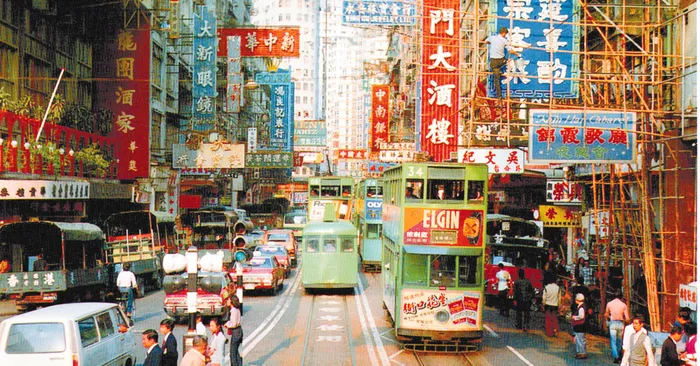Hong Kong urges it’s residents to 'smile more' in an effort to boost tourism

Unfriendly service staff at restaurants, once considered a quirky feature of Hong Kong, are now increasingly seen as a deterrent for tourists. File Picture.
The Chinese enclave of Hong Kong is continuing to struggle with reviving its tourism industry in the aftermath of the Covid-19 pandemic and the Beijing-led crackdown on civil liberties.
In a renewed effort to boost tourism, the city is urging its residents to adopt a more courteous approach towards visitors.
Unfriendly service staff at restaurants, once considered a quirky feature of Hong Kong, are now increasingly seen as a deterrent for tourists.
To address this, the city government has launched a new campaign to promote politeness. According to Kevin Yeung, the Secretary for Culture, Sports, and Tourism, a "handful of black sheep" have garnered negative attention for behaviour that "tarnishes our image."
The tourism secretary announced a multi-departmental initiative aimed at transforming the city's reputation. The Education Bureau will implement programmes to teach courtesy to students, while the Home Affairs Department will organise community activities to encourage friendliness, potentially offering rewards for "good performance."
Yeung also mentioned that authorities will distribute a series of video clips urging residents to "go the extra mile" to enhance the city's hospitality.
Hong Kong Chief Executive John Lee supported the campaign during his regular press conference on Tuesday. "I ask you all to take part, to enhance visitors' experiences," he said through an interpreter. "We should be more courteous, we should be more helpful, we should smile more, we should go the extra mile to promote Hong Kong’s hospitality so that Hong Kong becomes known as a welcoming destination."
This is not the first time Hong Kong has attempted to address its perceived attitude problem—similar politeness campaigns were launched in the 1990s and early 2000s.
Data from the Hong Kong Census and Statistics Department and Tourism Board indicate that the city experienced a peak of over 6.7 million visitor arrivals in January 2019. By April 2024, this number had fallen to less than half.
The decline in visitor numbers aligns with Hong Kong’s changing political landscape, with arrivals starting to decrease following the major pro-democracy protests in 2019 and the subsequent suppression of dissent and anti-China sentiment in the city.
The profile of Hong Kong’s post-pandemic tourism has also changed significantly.
In 2010, government statistics showed that 10% of visitors were from Europe and the Americas, while 63% were from mainland China.
By 2023, only 5% of visitors were from Europe and the Americas, with 79% coming from mainland China. Additionally, countries such as the U.S., Canada, and the U.K. have issued travel warnings advising their citizens about the enforcement of local laws.
As the city’s tourism secretary, Yeung acknowledges the significant challenge ahead: "The hospitality movement cannot solve all of society’s problems," he said, "but the spirit is what counts."
Sarene.Kloren@iol.co.za
IOL Travel